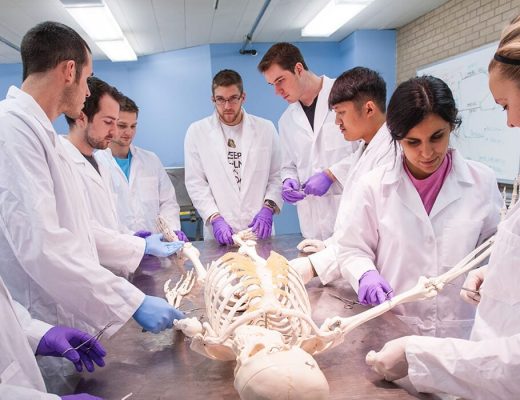Of the many things that I have only learned upon being in real-world practice for ten years, having pain-in-the-ass patients is perhaps the greatest one.
Throwback to the chiropractic school days, when we were as psyched as can be about our chosen career path. I knew from my first year in college, after having been a chiropractic patient for six years already, that I wanted to pursue the holistic health care field and in particular chiropractic medicine. Chiropractic school was an utter joy for me. Well, not the academics, as I struggled with these (don’t we all?), but I had some of the best friends I had ever met, we were practicing the art and skill of adjusting every single day, and we were eager to start our life mission of healing the world.
Fast forward to practice. A few years in, I am doing well, anxiously excited as I observe my fresh-out-of-school cash practice, which is all my own as I never joined up with another chiropractor, really take off. I begin to notice that real-world patients are generally not like my peers in chiropractic school. I am out in the world, serving the population who is really in need. As my practice grows, I attract more and more difficult cases, people who are desperate for help. Here is where I start to notice the pain-in-the-ass patients.
These patients have a variety of characteristics, from being demanding and dictatorial to being highly reliant and high-maintenance, to being emotionally draining either with their pervasive negative energy or their ability to spend 99% of their visit talking your ear off, to being critical, to being downright rude and disrespectful. Oh and just to mention, many will be extremely difficult to adjust, because we aren’t all built like 20 something chiropractic students, but that’s another topic for another day.
Now, a few things. In school, they may tell you to simply “fire the patient”. I have done this, and chances are you will too. In self-help books, they will tell you to “set the boundary”. I have also done this. Some will tell you, “Fuck em, just forget about them.” Easier said than done. In my opinion, it’s not this black and white. Let me tell you what I’ve learned thus far.
First of all, let me preface this with yes, you will have plenty of patients, the majority of patients in fact, who are super responsive to your care, so grateful for the work you do, and endlessly praising of you. Then, you will have the pain-in-the-asses. These patients will challenge you and upset you in many ways. It will pervade your personal life. Here is what I’ve learned. These patients will be your greatest source of growth. These patients will provide you with the discomfort that is required for you to soar, both personally and professionally, should you be up for their trials. The difficultness of these patients speaks prominently to their deep unhappiness with being in both physical and emotional pain and their longing to be free of it. Their desperation means they put hope in you. Their requests force you to create and set your own personal and professional boundaries, a necessary skill in life. These are the people that truly need our help. This is the reason we are in the field. At times, they will make you curse your life. Ultimately, they ask you to dig deep into your heart. In the end, you will be thankful for what they teach you, whether they end up remaining in your care or not, you will come to a larger understanding of why people say and do the things that they do. If you look beneath the surface, you will see their pain. And that is what we are out to change in the world, correct? They will also cause you to look deep into yourself, to contemplate your self-worth and who you are. Look to these patients as opportunities and signals of growth. Come from your heart and not just your head. Am I saying to continue treating a patient if they disrespect you? No. I am saying, if you dig deep, you will see the blessings and you will know what actions are in the highest good, for both the patient and yourself. It will be one of the greatest gifts to your self-development.
Almost ten years into practice, I am still complaining about my pains-in-the-asses (my boyfriend can begrudgingly vouch for this), but I recognize that without them my practice wouldn’t be what it is today, and neither would I.






No Comments